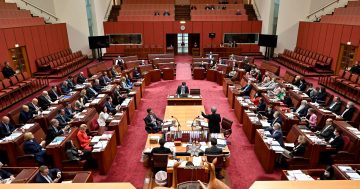
As a Kate Lundy fan, I’m sorry to see her retire but as an old political retiree, I fully understand all the reasons why the decision was taken, and wish her all the pleasure of the next stage in life that I have enjoyed.
I started writing this piece when I heard Kate and wondered on the value of an upper house at all. In saying this I declare my bias having served in a uni-cameral system.
In the past the concept of a House of Review had never really been realised. It was just an extension of the Lower House. It is impossible to have a house of review which contains people whose decisions are the subject of that review. Also, having Senators with shadow portfolios goes against the system of a House charged with oversight as they have an interest in pushing their own Party’s position.
However, recently we have seen a Senate oversee the policies of a government which by all reports were not in the public interest and that same Senate has put the brakes on said government. Whatever the Senators’ motives were, the brakes were applied to a government which would charge more for health; create $100,000 uni degrees and walk away from our climate change responsibilities, while giving favours to miners. If it were not for the Senate, we would have seen those policies enacted.
Even so, this does not justify an anachronism.
The Senate is elected through proportional representation, with the numbers of Senators per State determined by the Constitution, as amended. The minor parties would say that this is democratic.
Well, what part of democracy gives one senator from Tasmania the right to hold a government to ransom? Jacqui Lambie is just the most recent. Anyone remember Brian Harradine? And what of Albert Field? And Mal Colston (just to even things up)? What part of democracy gives Senator Muir a share in the balance of power with 0.51% of the vote?
That Tasmania, with a population of 514,700, as at March 2014, should have the same number of senators as NSW or Victoria is ludicrous. That they should have six times the number that the ACT enjoys is even worse.
Interestingly, this Upper House system is duplicated in NSW, SA, WA, Victoria and Tasmania. You might like to know that the sky hasn’t fallen in in the Northern Territory, Qld or here.
For mine, the Senate ought to be abolished and the States which have upper houses should follow suit. The notion of an upper house is a throwback to the British system of a House of Commons and a House of the Privileged.
Perhaps it’s time we grew up politically.




















